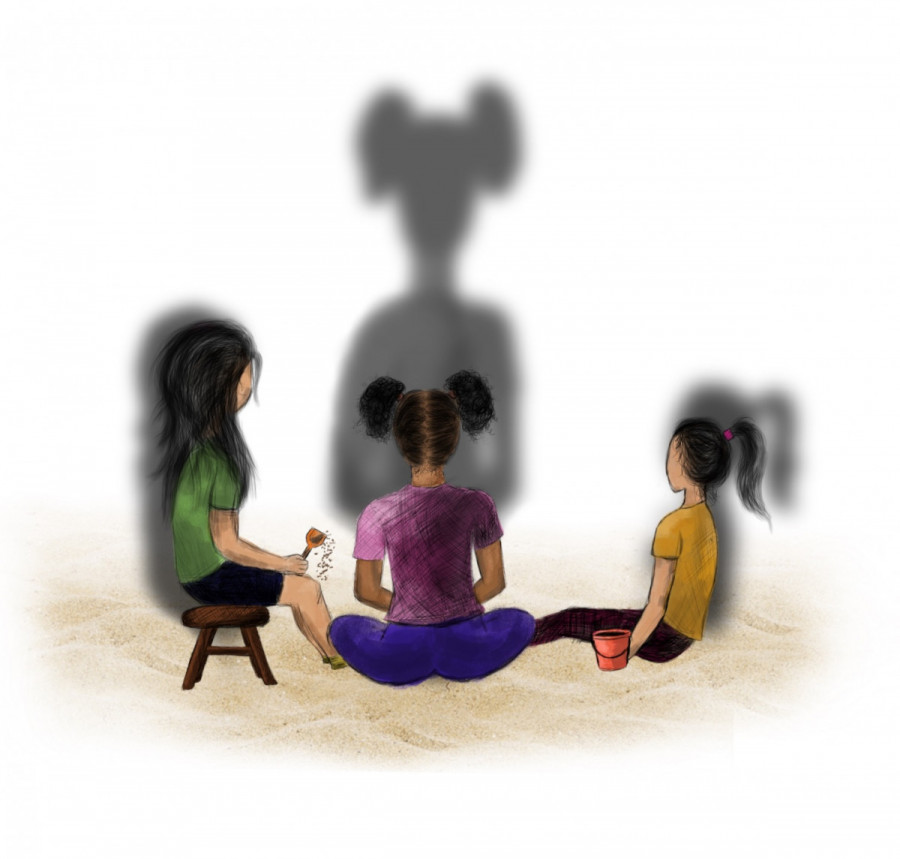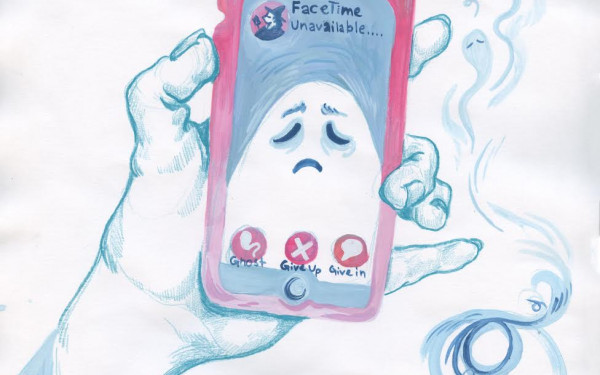Leave Black girls alone
The dangerous effects of adultification and hypersexualization on Black girls
At ten, puberty came knocking on my door like a hurricane, shaking up my world with its wild winds of change.
I was developing at an alarming pace compared to others. It was made clear from the beginning that this new body I was entering was a distraction.
This resulted in me being in constant battle with my body.
I perceived it as a burden. As I looked around the locker room, I could not help but compare my body to the other girls, always feeling a step further. I never dared to think about wearing a tank top, or a tight T-shirt.
By the time I got to high school, wearing an identical uniform, the difference was still striking. I had the mind of a teenager in a young woman’s body. On my journey to body neutrality and positivity, I have understood that my experience is the one of many young Black girls and women.
The adultification bias of Black women and girls is entangled in the premature perception of them as adults.
Adultification is a phenomenon in which Black girls are perceived as more mature than white girls. It robs young Black girls of their childhood, pushing them into a stage of their lives for which they are unprepared.
In a study about Black childhood, a majority of the participants from diverse backgrounds perceived Black girls between the ages of five and 14 as more mature.
Adultification leads to many disadvantages for these girls, such as mistreatment to missing simple experiences in finding their identity. This perception extends to viewing Black girls as needing less nurturing, protection because they’re seen as more independent.
Adult survey participants perceived Black girls as knowing more about adult topics, including sex, implying their inherent sexualization.
This adultification of Black girls as sexualized beings contributes to their loss of innocence, affecting how they are treated in education and juvenile justice systems.
The sexual connotation often attributed to our bodies goes back to slavery.
During slavery, Black women were stereotyped into categories: the sapphire, the jezebel, or the mammy.
The sapphire is seen as brute, loud, and aggressive. In contrast, the mammy is nurturing, and selfless, with no sexual desire. Lastly, the jezebel is hypersexual, a seductress that will tempt and exploit men. The jezebel has created the perception of Black women being sexually promiscuous.
This is not only dehumanizing but also hurtful. These stereotypes have had an exceptional impact on the perception of Black women today.
Hollywood has maintained the dehumanization of Black women by turning them into sexualized objects. A study on the media’s representation of Black women found that they are more likely to be depicted as partially or fully nude compared to white women, and they are twice as likely to be seen in revealing clothing on screen.
This continued cultural fetishization and hypersexualization of Black women further sexualizes Black girls in the process. This affects how Black girls are viewed and treated, contributing to their adultification.
I have experienced many instances of sexualization and adultification as a Black woman. I believe that the root of the problems lies in stereotypes being perpetuated.
We need to criticize our school systems while holding our cultural institutions accountable for continually fetishizing Black women.
Black girls deserve a sheltered childhood.
This article originally appeared in Volume 44, Issue 13, published April 2, 2024.







_1__600_375_90_s_c1.jpg)